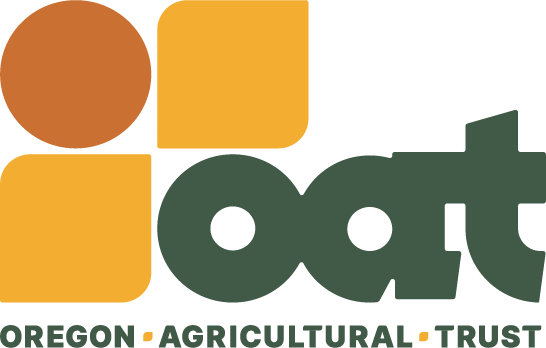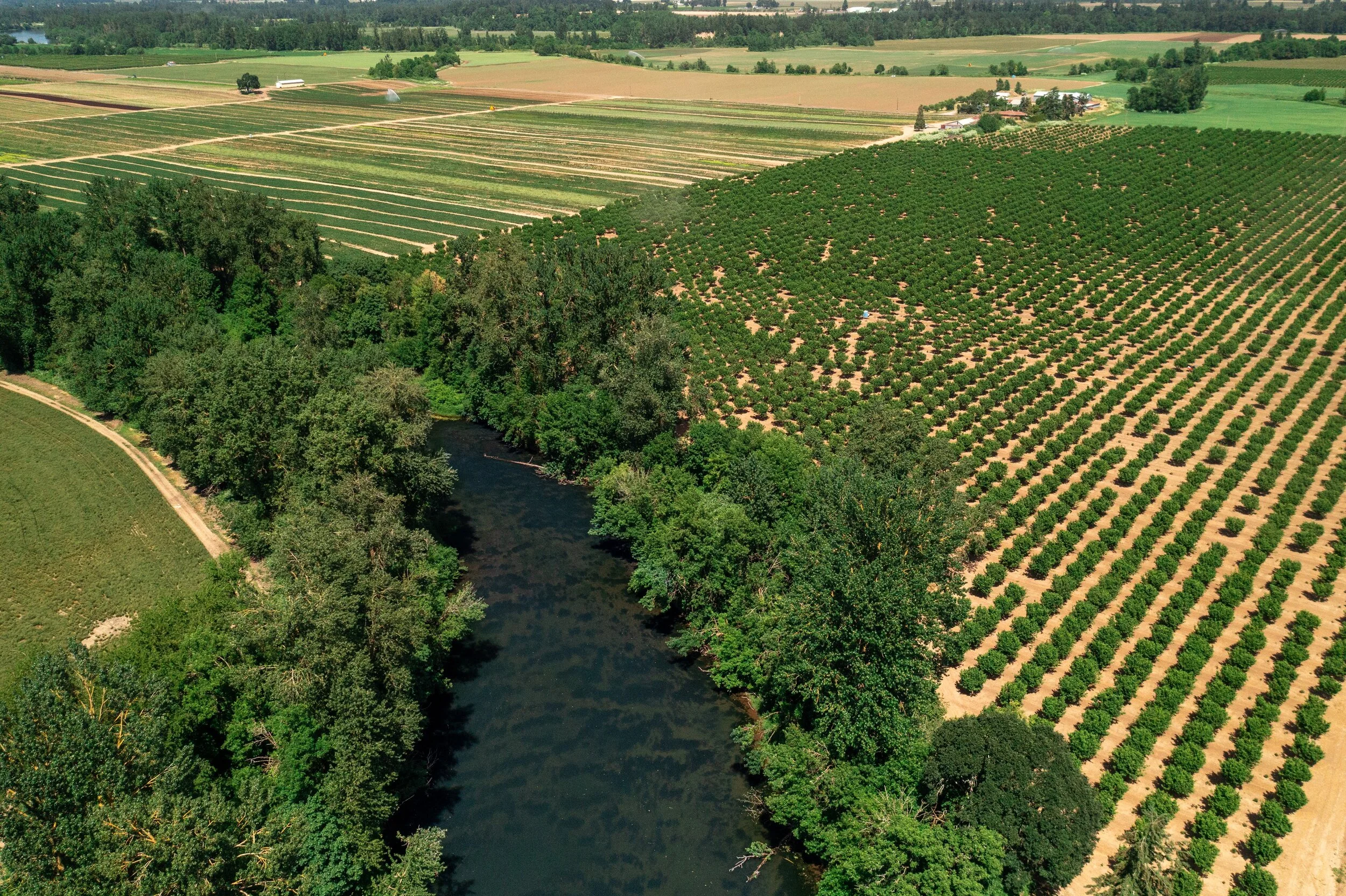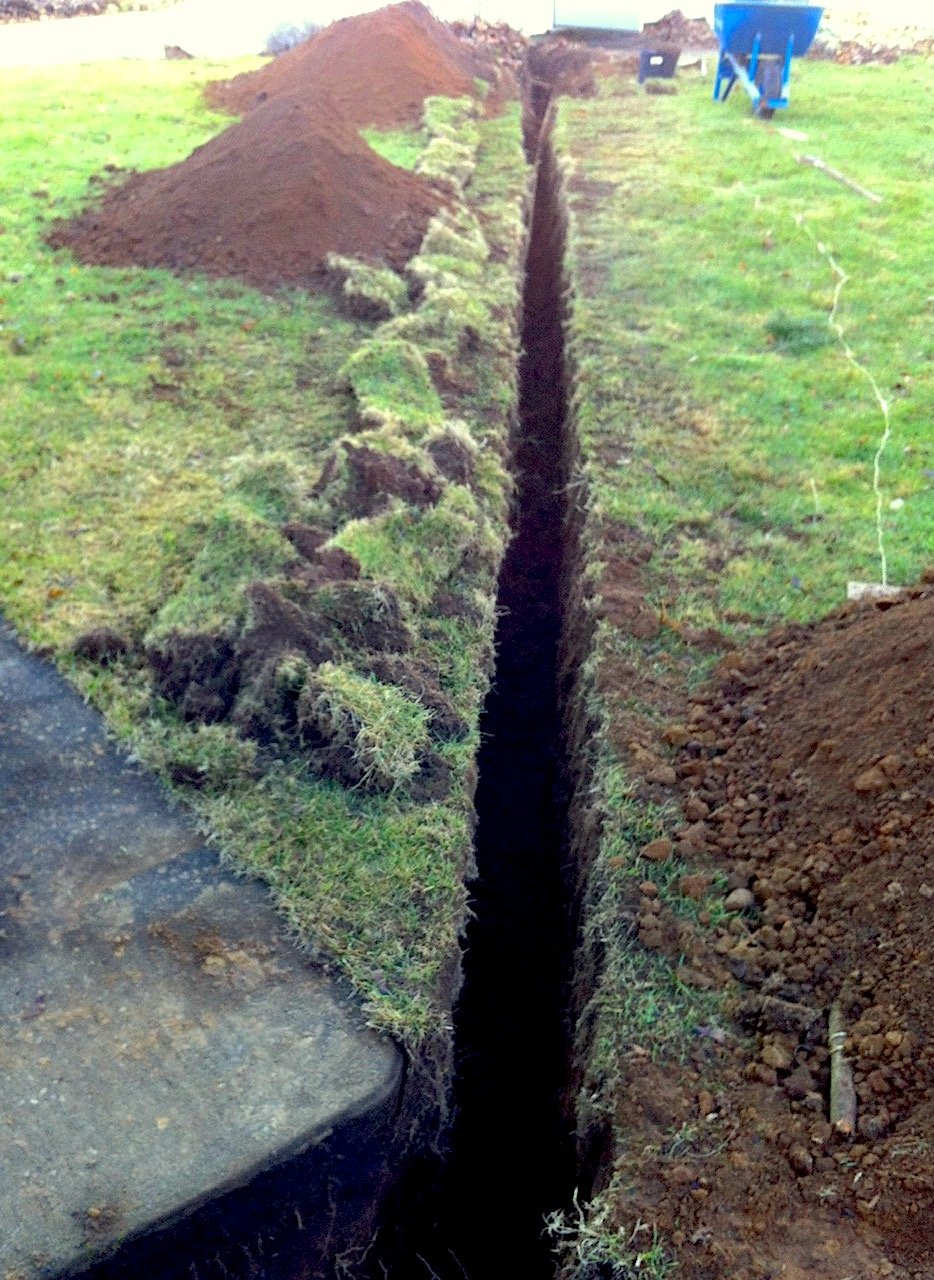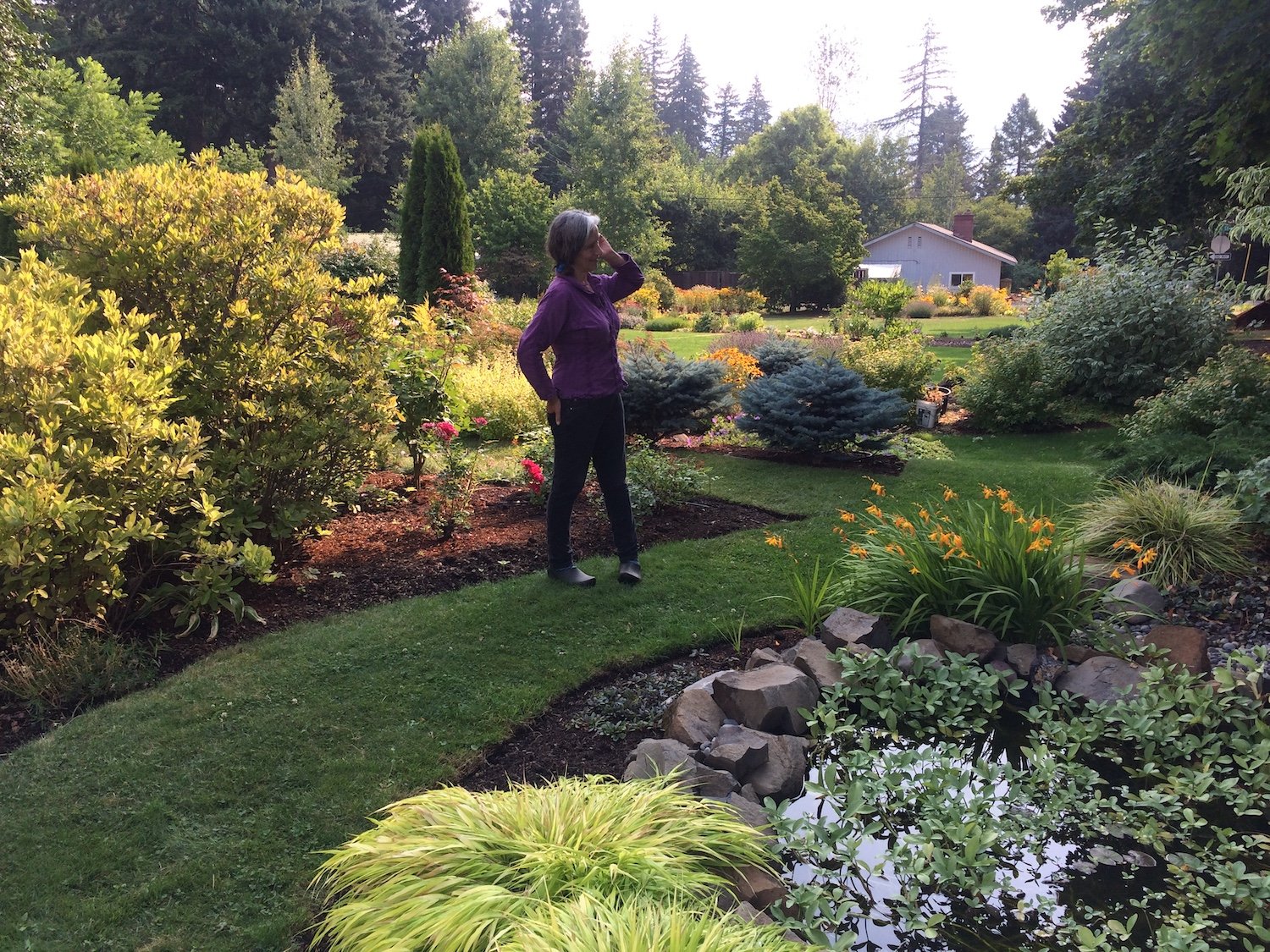Our Communications Manager Cynthia Lopez sat down with OAT member and Parkdale resident Jana Castañares to talk about why farmland in her region and throughout the state is precious, and why she’s dedicated to helping OAT protect it. Click here to join Jana in supporting OAT’s work as a member.
Cynthia: What made you want to support OAT?
Jana’s trench dug from “Parkdale gold”
Jana: When I learned that OAT is interested in keeping the agricultural land here in the hands of farmers forever and protecting it from development, I jumped to support the effort, at least partly because I’ve become aware that the land reserved for agricultural use here is such amazingly good farmland.
I’m originally from Portland, but met my husband in LA--we were teachers there for many years before returning to Oregon. I noticed the quality of the soil here in a memorable way about a year after we moved into this house. I had hired an electrician to run a line from the house to the detached garage, and he said he needed to dig a 30-foot trench at least 2 feet deep from the house to the garage. I offered to dig it myself, knowing the dirt here was better than the clay pack at our home in LA, but I wasn’t prepared to be delighted by all that digging! There were no rocks at all--just rich, reddish, fine-textured soil all the way down that felt wonderful to touch.
That was when I understood why locals call it “Parkdale gold” and when I began to appreciate that I’m not walking around on ordinary dirt here. Unfortunately, acknowledging that this is good farmland doesn’t stop developers from wanting to build on it. This is a beautiful area, demand is high for affordable housing, and it’s even more profitable to build fancy second homes for folks who don’t live here. But once the land is paved over, it’s lost.
Cynthia: You’re not a farmer yourself. How did you become interested in helping farmers keep their land?
Jana: I think it’s because I’ve gotten to know some of them by going to the pub near my home. I love that place—so many different kinds of people! Grandpas and babies and painters and dogs and entrepreneurs and bus boys and nerds. I like them all, and am indebted to all the growers there for helping me as I’ve become more passionate about gardening.
Now as I worry about the effect of unfriendly weather and pests in my own garden, I find myself worrying about how they are affecting these people I love who grow things for a living. Farming is such a risky business--and not just because of weather! Costs are rising, but the price of fruit isn’t (a friend told me recently that twenty years ago an orchardist could make a living on 80 acres, but it takes 120 acres now!), so there is a lot of pressure to increase productivity per acre--and conscientious people are trying to do that while reducing the use of pesticides and chemical fertilizers. Increased production also increases the need for labor, but there are fewer field hands available now, at least partly because of tightened restrictions on immigration. Folks are scrambling to find solutions, experimenting with planting dwarf root trees to increase production, and networking with each other to keep field workers employed through the seasons.
But the cruncher came a couple years ago when I met a young couple who wanted to buy some land here and farm it, and I thought, “Wait. All the farmers and orchardists I know were either born on their land or were hired as managers by some distant landowner. If it’s so hard to succeed when you don’t have to buy the land, how can you make it if you have to buy the land, too?” And I started to worry about what will happen to the orchards of boomers who want to bequeath the land to their kids, but their kids don’t want it--will a new generation of farmers be able to afford it?
Jana in her garden.
That is when I heard about OAT. I am so grateful to this organization for recognizing that the farmland left in Oregon is an irreplaceable treasure, a living resource that is seriously undervalued by our economy and at high risk of being lost to commercial interests. OAT’s plan to offer financial incentives to farmers that help them afford to keep the land as farmland is key. It basically invites farmers to sell the development rights to their land to OAT. This compensation makes it easier for landowners to resist selling to developers, and makes farmland more affordable to new farmers—a win-win strategy!
I’m really struck by how hard farmers work and by how much uncertainty they have to deal with. Lucky us, we still have small farms here, but it’s clear to me that we undervalue both what we eat and the expertise of the folks who work so hard to feed us. Bottom line: I support the Oregon Agricultural Trust because it supports farmers and is committed to protecting our agricultural land for future generations!



